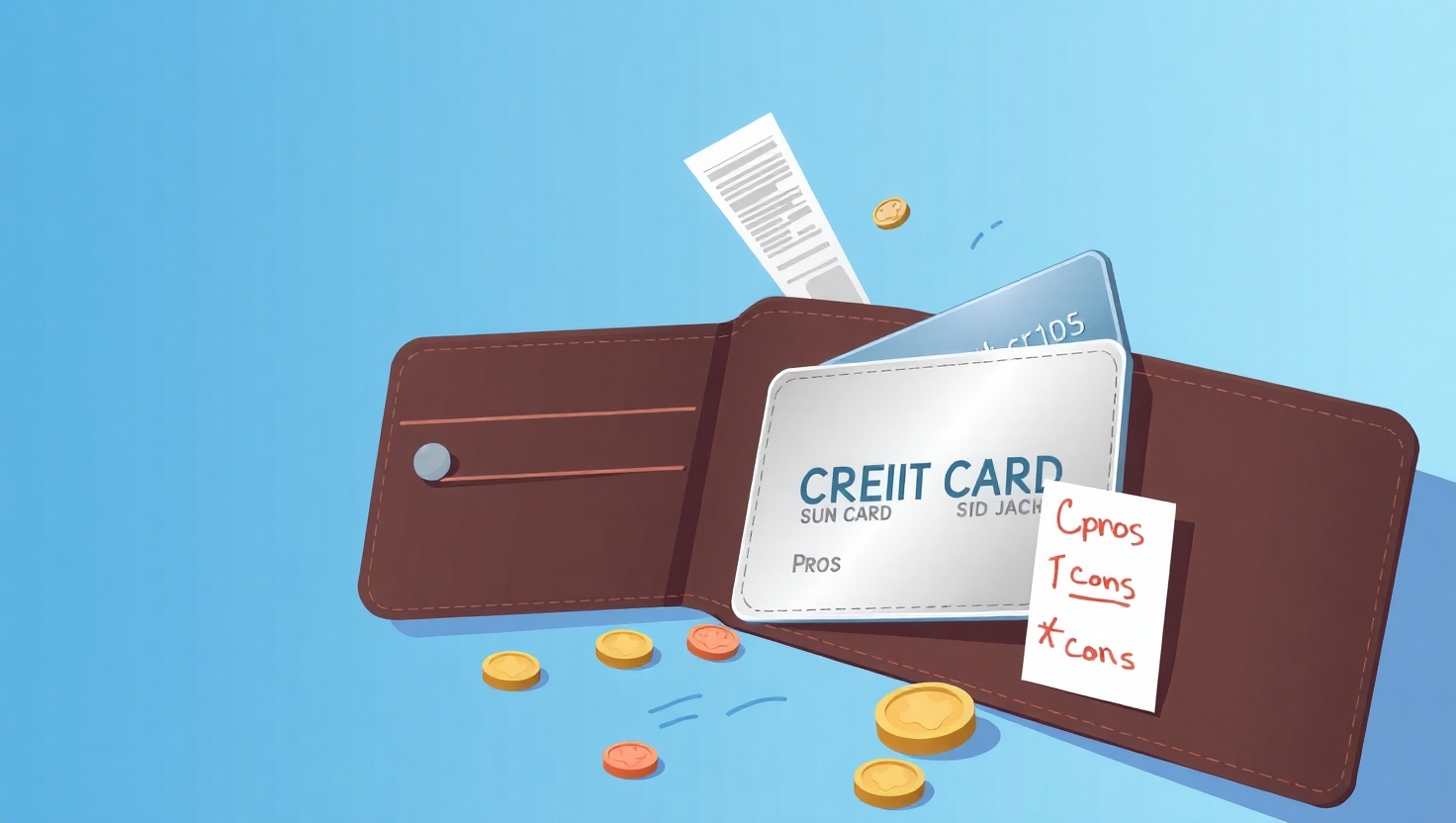The Pros and Cons of Using Credit Cards
Credit cards have become a staple of modern financial life, offering convenience, rewards, and purchasing power. However, they also come with risks if not managed carefully. Whether you’re considering your first card or reassessing your current usage, it’s important to weigh the benefits and drawbacks to make informed decisions.

The Pros of Using Credit Cards
1. Convenience and Security
Credit cards eliminate the need to carry large amounts of cash, making transactions smoother, especially for online purchases or travel. Many cards also offer fraud protection, meaning you won’t be held liable for unauthorized charges if your card is stolen or compromised.
2. Builds Credit History
Responsible credit card use—such as paying bills on time and keeping balances low—helps establish and improve your credit score. A strong credit history can make it easier to secure loans, mortgages, or better interest rates in the future.
3. Rewards and Perks
Many credit cards offer cashback, travel points, or discounts on purchases. If you pay your balance in full each month, these rewards can provide real value, essentially giving you money back for spending you’d do anyway.
4. Emergency Buffer
Unexpected expenses—like car repairs or medical bills—can strain your budget. A credit card can serve as a short-term financial cushion, provided you have a plan to pay it off quickly to avoid high interest.
5. Purchase Protections
Some credit cards offer extended warranties, price protection, or return guarantees on purchases. These benefits can save money and provide peace of mind when buying big-ticket items.
The Cons of Using Credit Cards
1. High-Interest Debt
If you carry a balance, credit cards can quickly become expensive due to high APRs (Annual Percentage Rates). Interest charges can compound, making it harder to pay off debt over time.
2. Overspending Temptation
The ease of swiping a card can lead to impulse purchases and living beyond your means. Without discipline, it’s easy to accumulate debt that becomes difficult to manage.
3. Fees and Penalties
Late payments, cash advances, and foreign transaction fees can add up. Some cards also charge annual fees, which may outweigh rewards if you don’t use the card enough.
4. Credit Score Impact
While responsible use helps your credit, maxing out cards or missing payments can damage your score. High credit utilization (using too much of your available limit) can also negatively affect your rating.
5. Potential for Fraud
Despite security measures, credit card fraud remains a risk. While you’re typically not liable for fraudulent charges, dealing with disputes and card replacements can be inconvenient.
Finding the Right Balance
Credit cards are powerful financial tools—when used wisely. To maximize benefits while minimizing risks:
- Pay your balance in full each month to avoid interest.
- Track spending to stay within budget.
- Choose a card that aligns with your habits (e.g., travel cards for frequent flyers, cashback for everyday spending).
- Monitor statements for errors or fraud.
Ultimately, whether credit cards work for you depends on your financial habits. With mindful use, they can offer convenience, security, and rewards—but without discipline, they can lead to debt. By understanding both sides, you can make choices that support your financial well-being.


